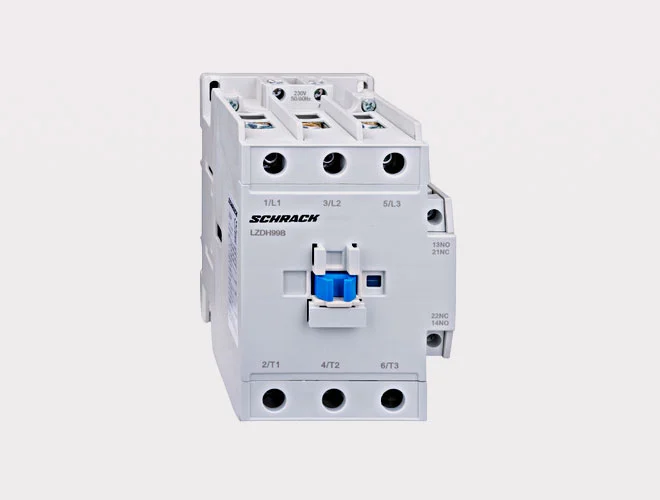Motor Control Solutions for Industrial Applications
Motor control solutions play a crucial role in industrial applications by ensuring efficient operation, safety, and energy savings. These solutions help regulate the speed, torque, and overall performance of electric motors used in various industrial processes.
Efficient motor control is essential for optimizing productivity, reducing energy consumption, and minimizing operational costs. In industrial settings, motors drive everything from conveyor belts and robotic arms to HVAC systems and pumps. Without proper control, these motors can consume excessive energy and lead to equipment failures.
Technological advancements have led to the development of digital and automated motor control systems. Smart controllers integrated with the Industrial Internet of Things (IIoT) provide real-time monitoring and predictive maintenance, reducing downtime and enhancing efficiency. With the rise of automation and Industry 4.0, motor control solutions are evolving to meet the growing demands of modern industries.


Motor Control Solutions for Industrial Applications
Motor control systems are designed to regulate the operation of electric motors, ensuring optimal performance and efficiency. These systems can control the starting, stopping, speed, direction, and torque of motors in industrial settings.
There are three primary types of motor control methods:
- Manual Control: Operated by human intervention, such as push buttons or switches.
- Semi-Automatic Control: Uses contactors and relays to automate certain functions.
- Automatic Control: Fully automated through programmable logic controllers (PLCs) and computerized systems.
Common industrial applications include manufacturing lines, energy production, transportation systems, and material handling. Proper motor control enhances system reliability, prevents damage, and optimizes energy efficiency, making it a critical component of industrial automation.
Types of Motor Control Solutions
Direct-On-Line (DOL) Starters: DOL starters are the simplest and most cost-effective motor control method. They provide a direct connection between the power supply and the motor, enabling full voltage at startup. However, they can cause high inrush currents, which may stress the electrical system.
Star-Delta Starters: Star-delta starters are commonly used in applications requiring reduced starting current. They initially connect the motor in a star configuration, limiting voltage and current. Once the motor reaches a specific speed, it switches to a delta configuration for full power operation.
Soft Starters: Soft starters gradually increase motor voltage during startup, reducing mechanical stress and power surges. This method improves the lifespan of motors and enhances system stability, making it ideal for pumps, fans, and conveyor systems.
Variable Frequency Drives (VFDs): VFDs are advanced motor controllers that allow precise speed and torque control. They adjust the frequency and voltage supplied to the motor, enhancing energy efficiency and reducing wear and tear. VFDs are widely used in HVAC systems, industrial automation, and renewable energy applications.
Servo and Stepper Motor Controllers: Servo and stepper motor controllers provide high-precision control for automation and robotics. Servo systems offer feedback mechanisms for precise positioning, while stepper motors operate in discrete steps, ideal for applications requiring accuracy.
Programmable Logic Controllers (PLCs) & Industrial IoT Integration: PLCs and IIoT-based motor control solutions provide real-time monitoring, automation, and predictive maintenance. They enhance efficiency, reduce downtime, and enable remote control of industrial motor systems.
Key Benefits of Motor Control Solutions
Energy Efficiency and Cost Savings: Advanced motor control solutions help optimize energy consumption, leading to lower electricity costs and reduced carbon footprints.
Extended Equipment Lifespan: By minimizing mechanical stress and electrical fluctuations, motor control solutions enhance the durability and reliability of industrial machinery.
Improved Safety: Motor control systems prevent overloading, overheating, and short circuits, reducing the risk of electrical hazards and equipment damage.
Enhanced Process Automation: Automated motor control enables precision in industrial processes, improving production quality and operational efficiency.


Industries That Rely on Motor Control Solutions
Manufacturing and Production Lines: Motor control solutions drive conveyor belts, robotic arms, and assembly lines, optimizing production processes.
Oil & Gas Industry: Pumping stations, drilling machinery, and refineries rely on motor control for efficient and safe operations.
Power & Renewable Energy: Wind turbines, hydroelectric generators, and solar tracking systems use motor control for power generation.
HVAC Systems: Fans, compressors, and air circulation units depend on motor control to regulate temperature and airflow.
Water Treatment Plants: Pumps, filtration systems, and chemical dosing mechanisms use motor control for water purification processes.
Emerging Trends in Motor Control Technology
Integration of AI & IoT: Smart motor control systems leverage AI and IoT for real-time diagnostics, predictive maintenance, and energy optimization.
Wireless and Cloud-Based Motor Monitoring: Remote monitoring solutions enable operators to track motor performance and address issues proactively.
Eco-Friendly & Energy-Efficient Solutions: Green motor control technologies minimize power consumption and reduce environmental impact.
Advancements in Motor Protection Devices: New safety technologies enhance fault detection, preventing costly damage and downtime.
Future Outlook & Market Growth of Motor Control Solutions
Expected CAGR and Market Expansion: The motor control solutions market is projected to grow at a CAGR of 7% over the next decade, driven by automation and energy efficiency demands.
Adoption of Industry 4.0 & Smart Manufacturing: Digital transformation and smart factories will drive demand for intelligent motor control solutions.
Investment Opportunities for Businesses & Manufacturers: Expanding product offerings in predictive maintenance and energy optimization presents significant growth opportunities.
The Role of Automation in Next-Generation Motor Control: Future motor control solutions will rely on AI-driven automation, enhancing precision, reliability, and efficiency.


FAQ
Motor control solutions are systems designed to regulate the operation of electric motors, ensuring optimal performance, efficiency, and safety. In industrial applications, they help manage motor speed, torque, and direction, reducing energy consumption and preventing mechanical failures. Efficient motor control enhances productivity, minimizes downtime, and extends the lifespan of equipment, making it essential for industries like manufacturing, power generation, and automation.
Industries use various motor control solutions based on their specific requirements, including:
- Direct-On-Line (DOL) Starters – Cost-effective and simple but causes high inrush currents.
- Star-Delta Starters – Reduces starting current for high-power motors.
- Soft Starters – Ensures smooth acceleration and minimizes electrical stress.
- Variable Frequency Drives (VFDs) – Allows precise speed and torque control, improving energy efficiency.
- Servo & Stepper Motor Controllers – Provides high-precision movement in automation.
- Programmable Logic Controllers (PLCs) – Enables automated motor control with IoT integration.
VFDs enhance energy efficiency by adjusting the frequency and voltage supplied to an electric motor, allowing it to operate at variable speeds based on demand. This prevents excessive power consumption, reduces wear and tear, and leads to significant cost savings. Industries using VFDs in HVAC systems, conveyor belts, and pumps report improved performance, lower electricity bills, and enhanced operational control.
The motor control industry is rapidly evolving with advanced technologies, including:
- AI and IoT Integration – Smart monitoring and predictive maintenance for reduced downtime.
- Cloud-Based Motor Control – Remote monitoring and real-time diagnostics.
- Energy-Efficient & Eco-Friendly Solutions – SF6-free motor controllers and energy-saving drives.
- Advanced Motor Protection Devices – Intelligent circuit breakers and overload protection mechanisms.
These trends help industries optimize energy use, improve safety, and automate motor control processes efficiently.
To select the best motor control solution, businesses should consider:
- Motor Type & Power Requirements – Understanding the motor’s voltage, frequency, and load conditions.
- Application Needs – Whether it’s for HVAC, automation, or heavy machinery.
- Energy Efficiency Goals – Investing in VFDs or soft starters for reduced energy consumption.
- Safety & Compliance Standards – Ensuring compliance with regulatory and industry standards.
- Scalability & Integration – Choosing solutions compatible with existing infrastructure and Industry 4.0 advancements.
Consulting with motor control experts or manufacturers can help businesses find the most cost-effective and efficient solution.
Motor control solutions are indispensable for modern industrial applications, ensuring energy efficiency, reliability, and automation. With advancements in AI, IoT, and predictive maintenance, the industry is shifting towards smarter and more sustainable motor control technologies.
To stay competitive, businesses must invest in modern motor control solutions that enhance productivity while reducing operational costs. As industries evolve, embracing innovative motor control strategies will be essential for long-term success.


